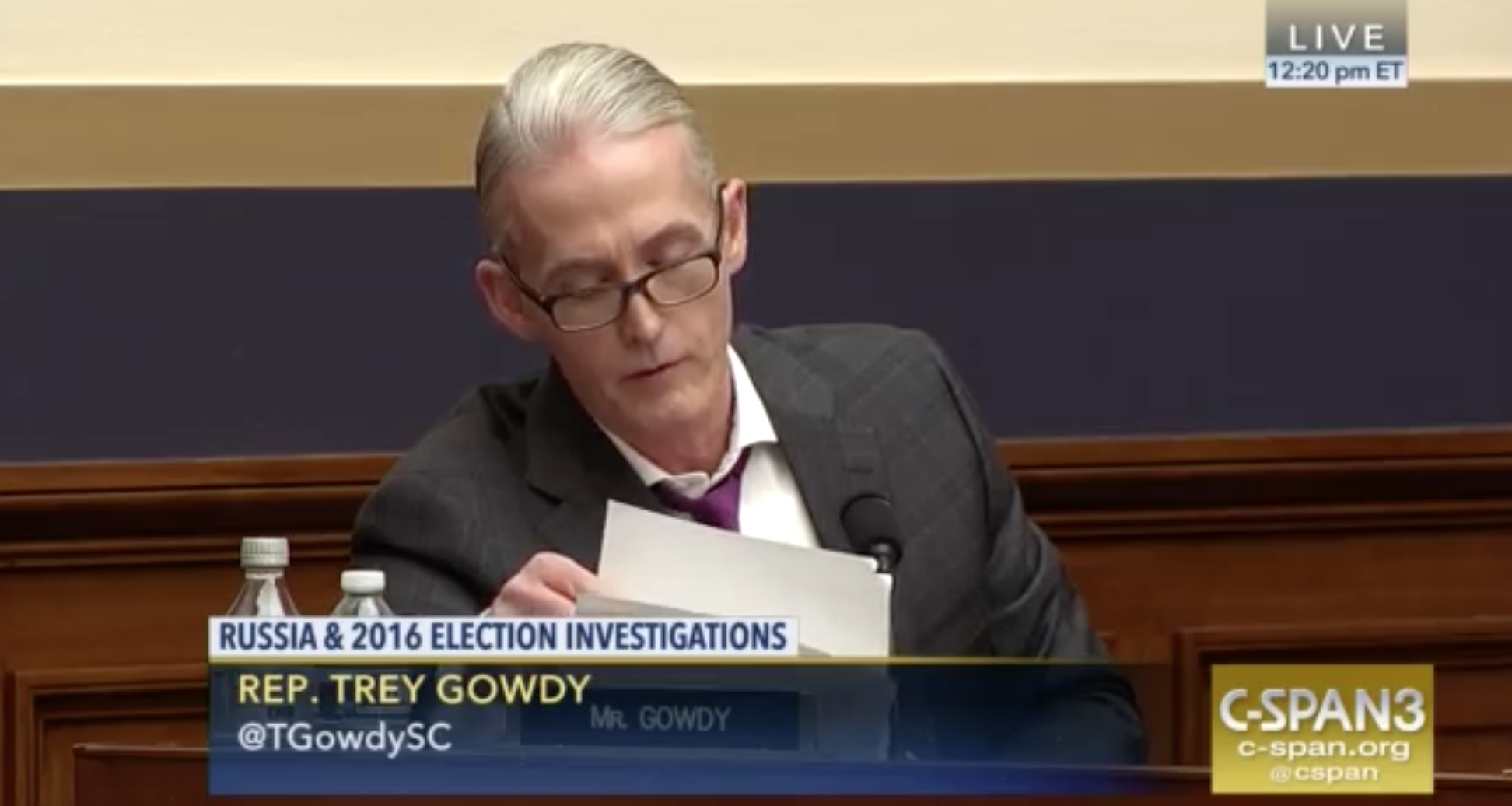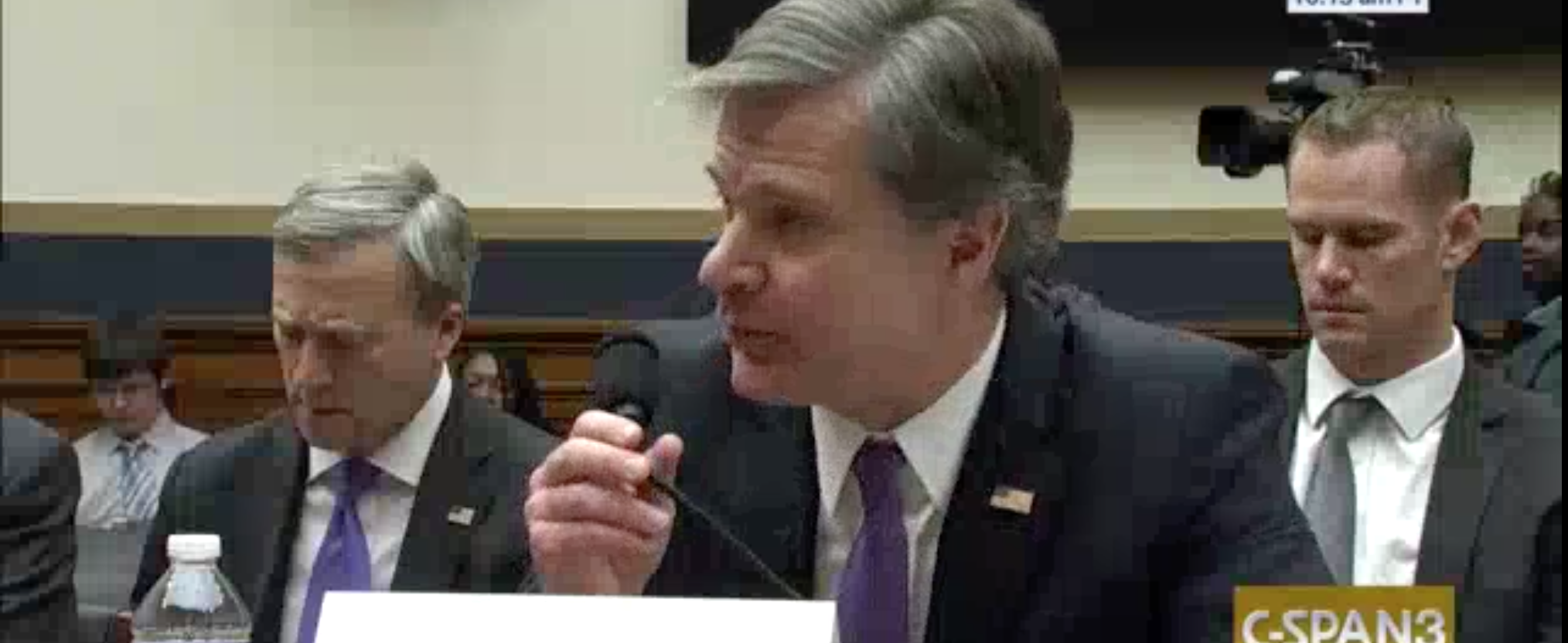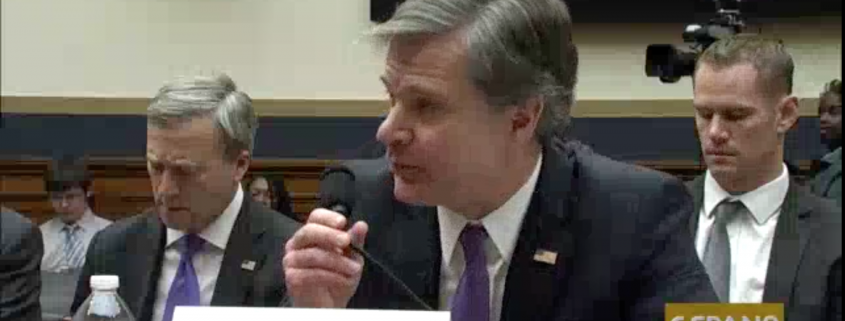Why Republicans Launched the GSA Email Attack Now
I think most people are missing the significance of why the Republicans launched their attack on the GSA over the weekend (this post is a summary of what we know, with updates).
That’s true, in part, because people are misunderstanding what the Trump for America team recently learned. It’s not — as many have claimed — that they only recently learned Mueller had emails beyond what TFA had turned over to Congress and through that to Mueller. As Axios reported, “Trump officials discovered Mueller had the emails when his prosecutors used them as the basis for questions to witnesses, the sources said.” That is, Mueller has been asking questions based off these emails for months.
The timing of this complaint — not the complaint itself — is key
What TFA only discovered last week, according to their letter, at least, is how Mueller obtained them — by asking, just like prosecutors reviewing government communications in the course of investigating possible violations of the Espionage Act always do, especially if the subjects of the investigation have access to classified documents.
We discovered the unauthorized disclosures by the GSA on December 12 and 13, 2017. When we learned that the Special Counsel’s Office had received certain laptops and cell phones containing privileged materials, we initially raised our concerns with Brandon Van Grack in the Special Counsel’s Office on December 12, 2017. Mr. Van Grack confirmed that the Special Counsel’s Office had obtained certain laptops, cell phones, and at least one iPad from the GSA – but he assured us that the Special Counsel’s investigation did not recover any emails or other relevant data from that hardware. During this exchange, Mr. Van Grack failed to disclose the critical fact that undercut the importance of his representations, namely, that the Special Counsel’s Office had simultaneously received from the GSA tens of thousands of emails, including a very significant volume of privileged material, and that the Special Counsel’s Office was actively using those materials without any notice to TFA.1 Mr. Van Grack also declined to inform us of the identities of the 13 individuals whose materials were at issue.
The government has great leeway to access government communications, as Peter Strzok, the former counterintelligence FBI Agent who just had his own communications leaked and then released to the world, would probably be all too happy to tell you. All the more so given allegations that files went missing from the Transition SCIF, just as Jared Kushner was talking about back channel communications with the Russians.
So what’s new is not that Mueller had the emails (about which no one has complained before). But that he obtained the email inboxes of 13 people, including Jared, from GSA without letting the Transition do their own review of what to turn over.
Trump’s team may face obstruction charges
As I made clear here, it appears that one reason the Trump people are so angry is that Mueller has probably caught them failing to turn over emails that are absolutely material to the investigation, such as KT McFarland’s “Thrown election” email. Whoever did these document reviews may now be exposed to obstruction charges for withholding such material, which in turn would give Mueller leverage over them for their own further cooperation.
[Update: I should have said, withholding emails will only be a problem if the Transition was otherwise obligated (say, by subpoena) to turn them over. Mueller did subpoena the campaign for a similar set of emails; but since he didn’t need to from GSA, he may not have here.]
Mueller has far more damning information on Jared than Trump’s folks expected
Just as importantly, Axios explicitly said the emails include Jared Kushner’s emails (indeed, given his public claims about how many people he spoke to during the transition, I wouldn’t be surprised if his was the email box that had 7,000 emails).
As I have shown, Jared has been approaching disclosure issues (at least with Congress) very narrowly, ignoring clear requests to turn over his discussions about the topic of the investigation, and not just with the targets of it. If Mueller obtained all his emails, he’d have those “about” emails that Jared purposely and contemptuously has withheld from others.
We know that Jared is a key interim Mueller target here (and Abbe Lowell’s search for a crisis communications firm to help sure suggests Jared’s defense team knows that too). We know he felt the need to explain how he went from responding to a personalized Vladimir Putin congratulatory email on November 9 to asking Dmitri Simes for Sergei Kislyak’s name.
Take, for example, the public statement prepared for testimony to congressional committees by the president’s son-in-law and adviser Jared Kushner. There, he revealed that on the day after the election, in response to a congratulatory email from Russian President Vladimir Putin, he asked the publisher of The National Interest, Dimitri Simes, for the name of Russia’s ambassador to the United States. “On November 9, the day after the election, I could not even remember the name of the Russian ambassador,” Kushner claimed. “When the campaign received an email purporting to be an official note of congratulations from President Putin, I was asked how we could verify it was real. To do so, I thought the best way would be to ask the only contact I recalled meeting from the Russian government, which was the ambassador I had met months earlier, so I sent an email asking Mr. Simes, ‘What is the name of the Russian ambassador?’”
We also know that Mueller’s team has expressed some skepticism about Kushner’s previous public claims — and I would bet money this includes that email.
CNN recently reported, however, that in an interview conducted in the weeks before Flynn’s plea deal, “Mueller’s team asked Kushner to clear up some questions he was asked by lawmakers and details that emerged through media reports.” So Mueller’s team may now have doubts about the explanation Kushner offered for his interest in speaking with Kislyak as one of the first things he did after his father-in-law got elected.
If Mueller has all Jared’s emails and those emails disclose far more about the negotiations with all foreign powers conducted during the transition (including with Bibi Netanyahu on settlements, but obviously also with Russia), and Trump’s people recognize those emails expose Jared to serious charges, then of course they’re going to complain now, as the expectation that Mueller might soon indict Kushner grows.
Mueller has an outline of places where Trump was personally involved
Most importantly, consider what those morons laid out: they want to claim that these emails from the transition period — emails they insist were not government emails — are protected by Executive Privilege.
The legal claim is ridiculous; as I and far smarter people have noted, you don’t get Executive Privilege until you become the actual Executive on inauguration day.
But that they made the claim is telling (and really fucking stupid).
Because that tells us which emails Trump officials believe involve communications directly with Trump. The KT McFarland email, which we know was written from Mar-a-Lago, is a case in point. Did they withhold that because they believe it reflects a conversation with Trump? If so, then we know that Trump was personally involved in the orders to Mike Flynn to ask the Russians to hold off on retaliating for Obama’s sanctions. It might even mean that the language attributed to McFarland — about Russia being the key that unlocks doors, efforts to “discredit[] Trump’s victory by saying it was due to Russian interference, “thrown elections,” and Obama boxing Trump in — is actually Trump’s own language. Indeed, it does sound like stuff he says all the time.
And given that the emails include “speculation about vulnerabilities of Trump nominees, strategizing about press statements, and policy planning on everything from war to taxes,” it might even reflect Trump’s own explanations of why — for example — he couldn’t nominate Flynn to be CIA Director because of his ties to Russia and Turkey.
In the wake of his plea agreement, Flynn’s surrogate made it clear that Trump ordered him to carry out certain actions, especially with Russia. That’s likely a big reason why, in the wake of the Flynn plea, Trump’s people are now squawking that Mueller obtained these emails, emails that may lay out those orders.
Heck. These emails might even reflect Trump ordering Flynn to lie about his outreach to Russia.
Maybe that’s why Trump’s aides have promised to demand Mueller return the emails in question.
All of which is to say, there are things about these emails that explain why this attack is coming now, beyond just a generalized effort to discredit Mueller. The attack is designed to discredit specific avenues of investigation Mueller clearly has in hand. And those avenues reveal far more about the seriousness of the investigation than anything Ty Cobb is willing to claim to appease the President.
That said, the attack is probably too little, too late.




